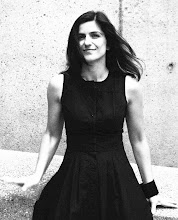20130823
Performative Social Science
By thinking "performatively", we are able to consider the interview in Denzin's terms: 'not as a method of gathering information, but as a vehicle for producing performance texts and performance ethnographies about self and society' (Denzin 2001: 24) where 'text and audience come together and inform one another (2001: 26) in a relational way. In Law and Urry's (2004) thinking, research methods in the social sciences do not simply describe the world as it is, but also enact it (2004: 391). They are performative; they have effects; they make differences; they enact realities; and they can help to bring into being what they also discover (2004: 392-93). Indeed, 'to the extent social science conceals its performativity from itself it is pretending to an innocence that it cannot have' (2004: 404). This leads us to a consideration of a "performative" social science.
Dr Kip Jones, The Continuing Development of a Performative Social Science at Bournemouth's Centre for Qualitative Research
Dr Kip Jones, The Continuing Development of a Performative Social Science at Bournemouth's Centre for Qualitative Research
[Text found here]
Note: Read about The Performative Turn at Wikipedia
Note: Read about The Performative Turn at Wikipedia
Labels: performance
What is Architecture?
Saskia Sassen: For me architecture at its best is a form of knowledge. It is not just putting up walls. It is incorporating all the knowledge we have. How can we use biospheric capabilities and how can we insert them in buildings? How can we use technologies, light, existing breeze, etc? It really is a form of knowledge; but a form of knowledge that is an axial condition that brings together many different forms of knowledge to come up with something. I make a big distinction between simply building a building (construction, the construction industry) and architecture. A lot of what goes under the name of architecture, I think, is a very mediocre form of knowledge. It’s not living up to what it should be.
Labels: architecture








